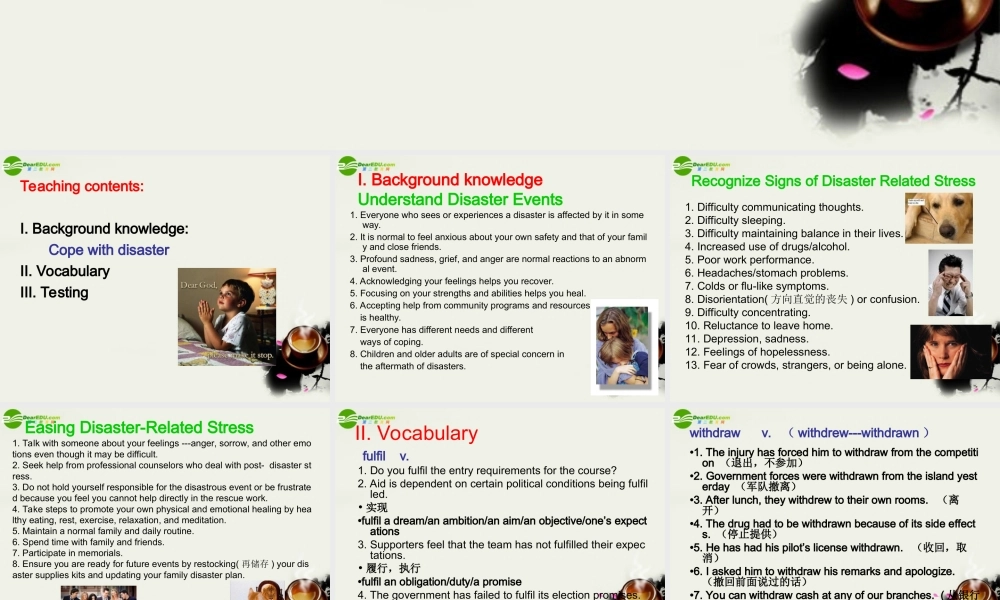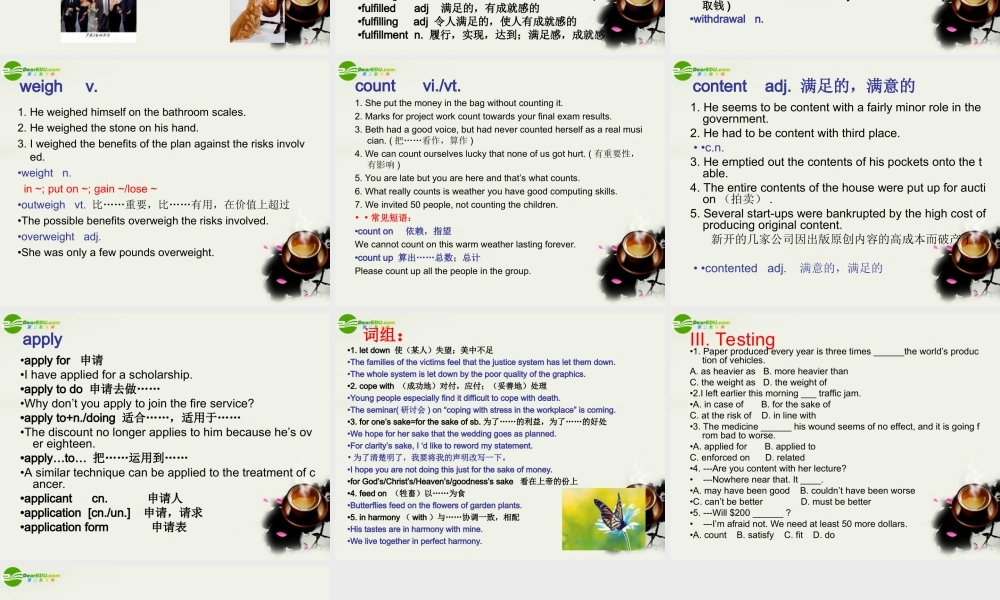Finding the correct perspective 高中英语视听课堂Teaching contents: I. Background knowledge: Cope with disaster II. Vocabulary III. Testing 1. Everyone who sees or experiences a disaster is affected by it in some way. 2. It is normal to feel anxious about your own safety and that of your family and close friends. 3. Profound sadness, grief, and anger are normal reactions to an abnormal event. 4. Acknowledging your feelings helps you recover. 5. Focusing on your strengths and abilities helps you heal. 6. Accepting help from community programs and resources is healthy. 7. Everyone has different needs and different ways of coping. 8. Children and older adults are of special concern in the aftermath of disasters.I. Background knowledge Understand Disaster Events 1. Difficulty communicating thoughts. 2. Difficulty sleeping. 3. Difficulty maintaining balance in their lives. 4. Increased use of drugs/alcohol. 5. Poor work performance. 6. Headaches/stomach problems. 7. Colds or flu-like symptoms. 8. Disorientation( 方向直觉的丧失 ) or confusion. 9. Difficulty concentrating. 10. Reluctance to leave home. 11. Depression, sadness. 12. Feelings of hopelessness. 13. Fear of crowds, strangers, or being alone.Recognize Signs of Disaster Related Stress 1. Talk with someone about your feelings ---anger, sorrow, and other emotions even though it may be difficult. 2. Seek help from professional counselors who deal with post- disaster stress. 3. Do not hold yourself responsible for the disastrous event or be frustrated because you feel you cannot help directly in the rescue work. 4. Take steps to promote your own physical and emotional healing by healthy eating, rest, exercise, relaxation, and meditation. 5. Maintain a normal f...



